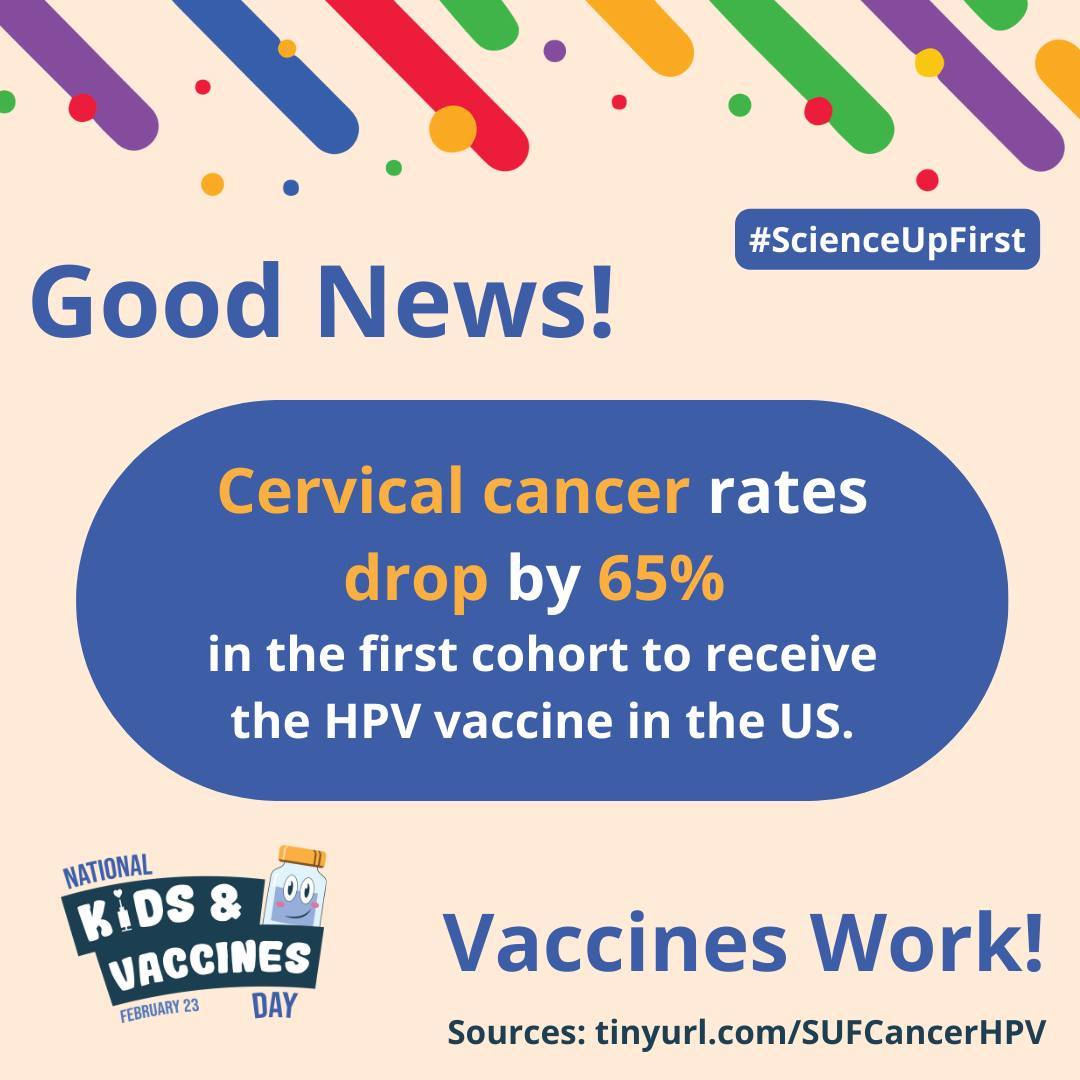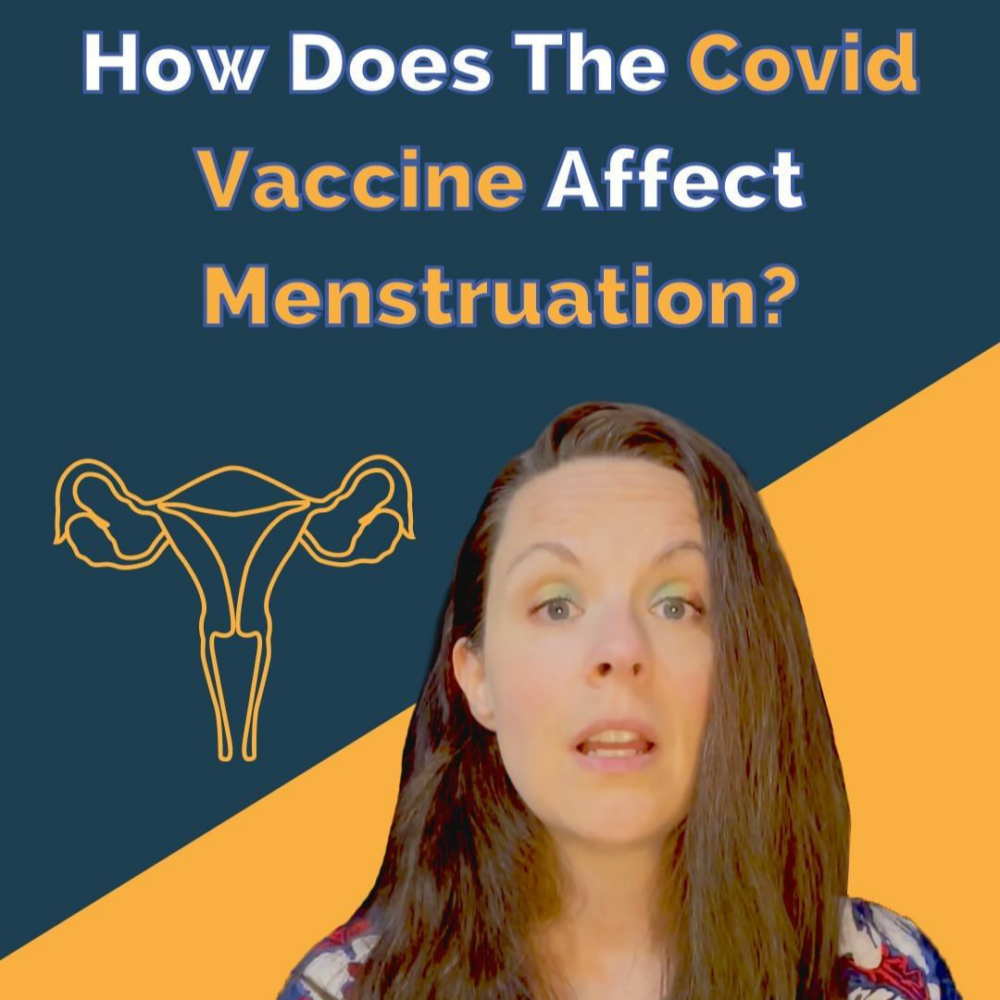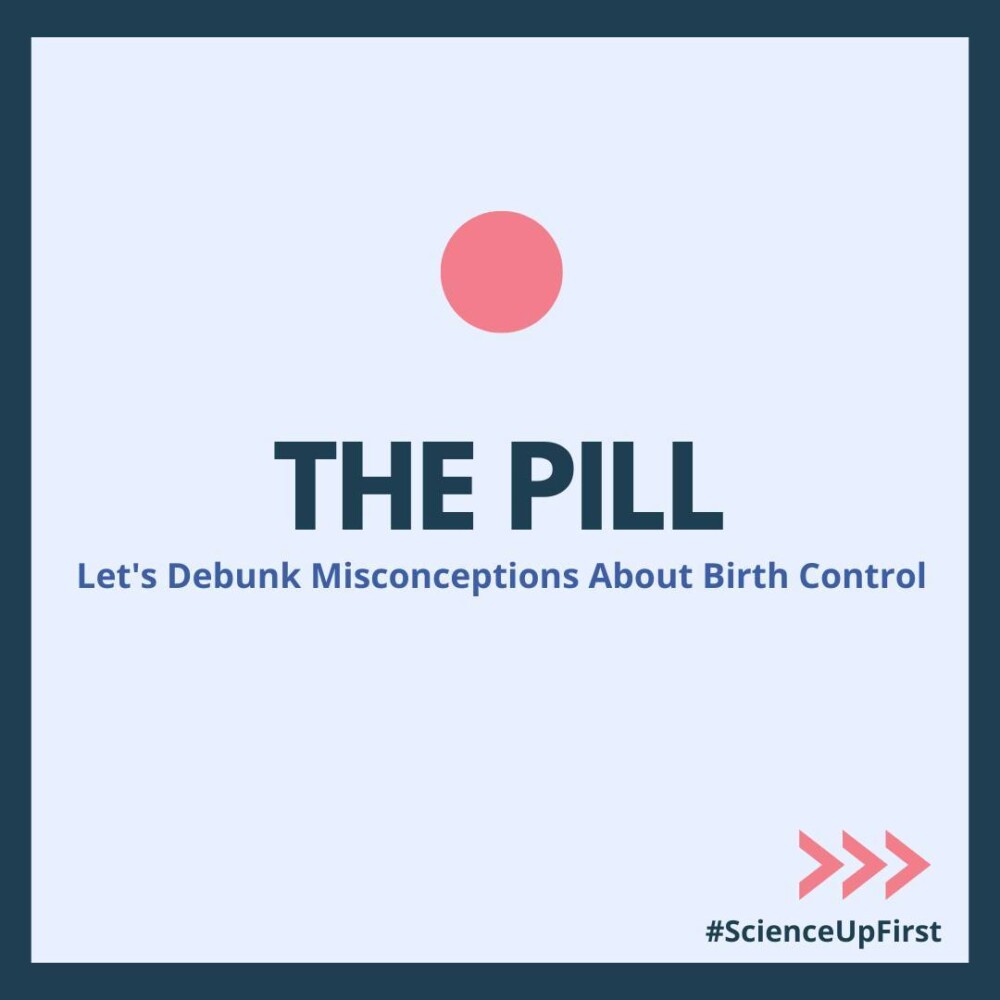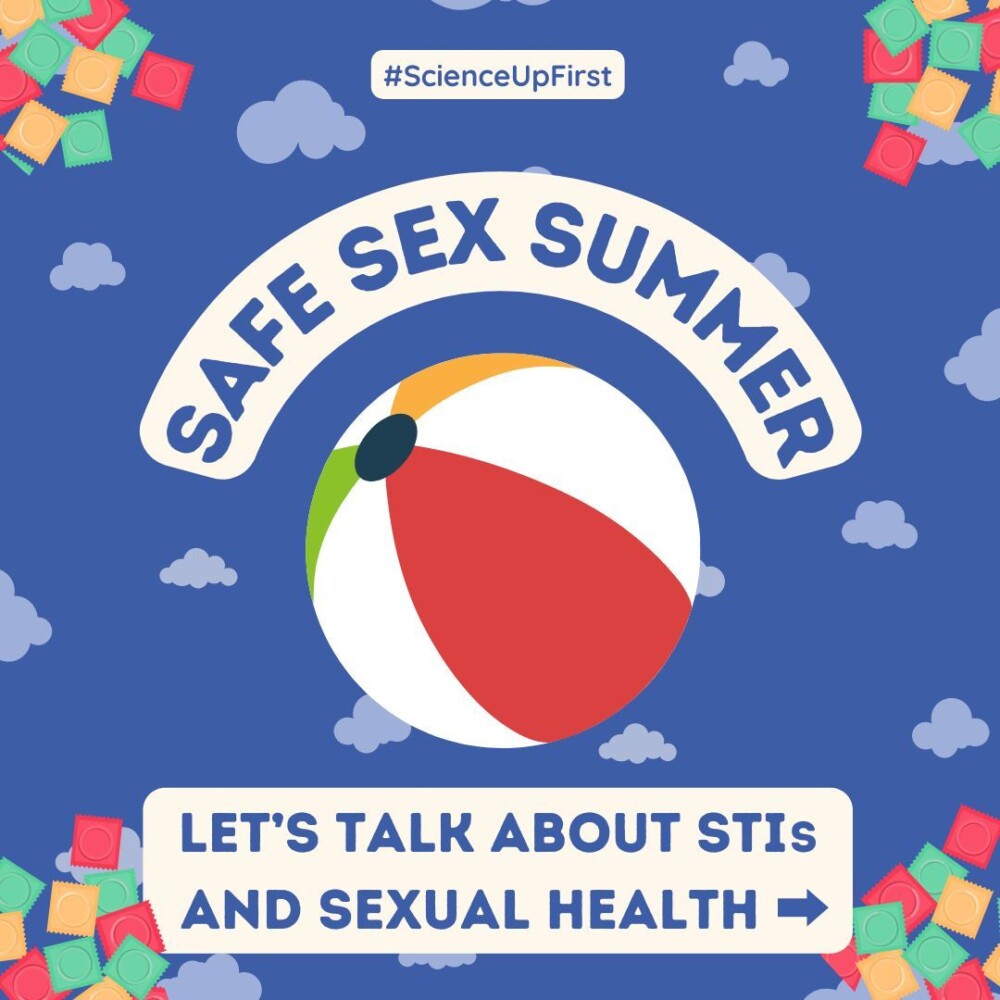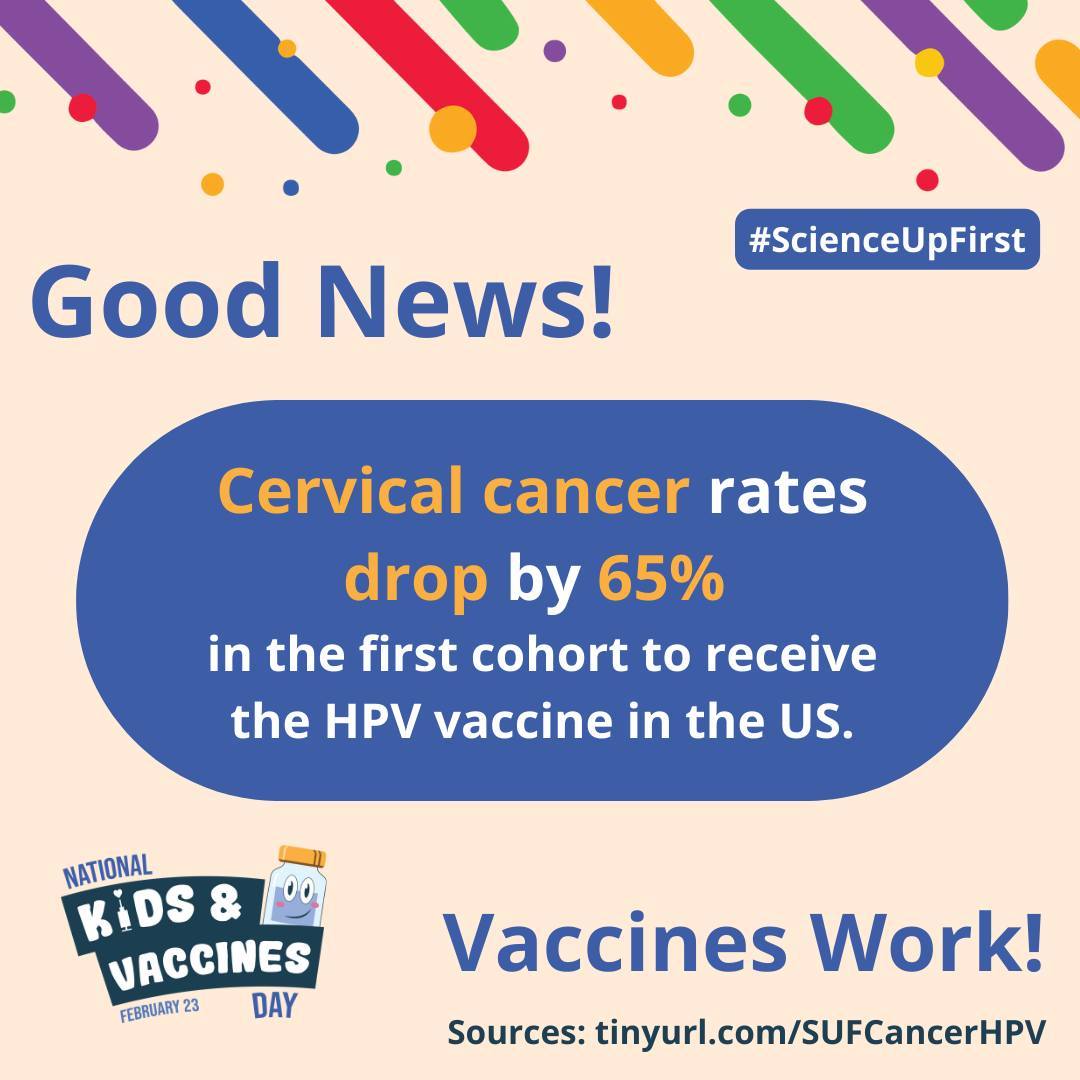
Virtually all cervical cancers are caused by long-lasting infections with certain types of human papillomavirus (HPV) called “high risk” HPVs (1).
On top of cervical cancer, you can develop oral, anal and other genital cancers from a high risk HPVs infection (2). Most HPV cancers are not common in males, but they can get infected and can spread the virus to others.
Fortunately for us, HPV vaccination can prevent most cancers produced by HPVs, including cervical cancer (2,3). For optimal protection, HPV vaccines should be offered to anyone 9 years old and older, before they become sexually active (4,5,6). That is because HPV is a sexually transmitted infection (1,5). But, you don’t have to have sex to get HPV, it can be passed via intimate skin-to-skin contact too (7).
If fully immunized before becoming sexually active, the risk of developing HPV cancers or precancerous lesions is reduced by more than 90% (2,3)!
The HPV vaccine was first approved in 2006, both in Canada and the U.S., and some studies are already starting to see its positive impacts on young adults (1,8). Cervical cancer incidence alone went from being reduced by 33% to 65% reduction with the first cohort to receive the HPV vaccine in the U.S. (1). Thanks to herd immunity, there was a significant decline in unvaccinated individuals too (1).
In Canada, HPV vaccination became part of the school-based immunization programme in 2017 (3). So it might take a couple more years before we start seeing the full extent of the vaccine’s positive impact.
Because vaccines can’t prevent all HPV-related cancers, it is very important that everyone keep up with their regular screenings and practice safe sex (4). Early detection, along with diagnosis, treatment and research are all crucial to eliminate cervical cancer (9,10).
Share this good news to remind everyone the importance of HPV vaccination and screening.
Share our original Tweet!
Virtually all cervical cancers are caused by long-lasting infections with certain types of human papillomavirus (HPV) called “high risk” HPVs.
Fortunately for us, HPV vaccination can prevent most cancers produced by HPVs!#KidsVaccinesDay #ScienceUpFirst
[1/6] pic.twitter.com/spaq2brPFL
— ScienceUpFirst | LaScienced’Abord (@ScienceUpFirst) February 3, 2023
View our original Instagram Post!
View this post on Instagram
- Cancer statistics, 2023
- Cancers Caused by HPV
- Background and key statistics on HPV immunization in Canada | FR : Contexte et principales statistiques sur la vaccination contre le VPH au Canada
- What Can I Do to Reduce My Risk of Cervical Cancer?
- HPV vaccine: Who needs it, how it works
- Updated Recommendations on Human Papillomavirus (HPV) Vaccines: 9-valent HPV vaccine 2-dose immunization schedule and the use of HPV vaccines in immunocompromised populations | FR : Recommandations mises à jour sur les vaccins contre le virus du papillome humain (VPH) : Calendrier de vaccination du vaccin nonavalent contre le VPH à deux doses et utilisation des vaccins anti-VPH chez les populations immunodéprimées
- Getting the HPV vaccine
- NACI Statement: HPV vaccine update | FR : Déclaration du CCNI : dernières nouvelles du vaccin anti-VPH
- Action plan for the elimination of cervical cancer in Canada, 2020–2030 | FR : Plan d’action pour l’élimination du cancer du col de l’utérus au Canada, 2020-2030
- The Path to Eliminating Cervical Cancer in Canada: Past, Present and Future Directions

